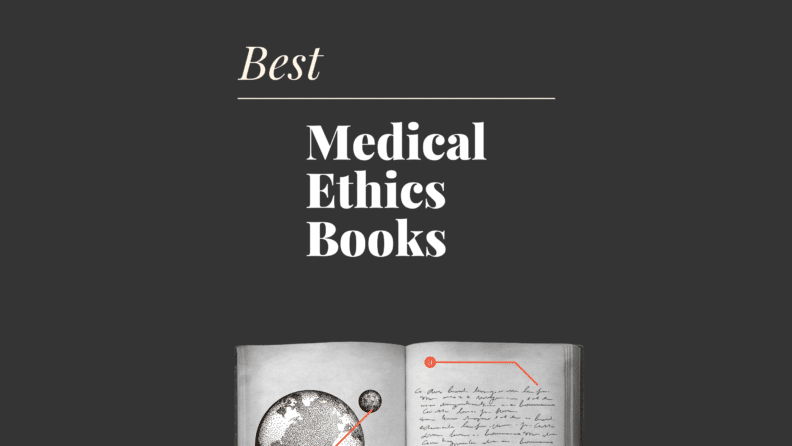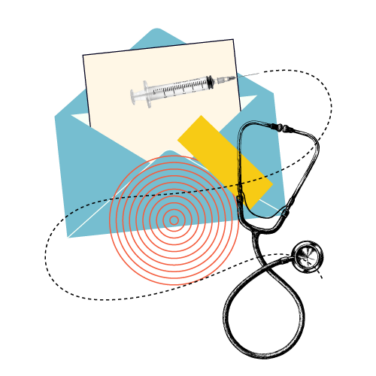The field of medical ethics is complex, especially with rapid advancements in biotechnology and healthcare. Books are a valuable resource for understanding these challenges. As a medical practice owner, here are my recommended best medical ethics books that provide a thorough understanding in straightforward terms.
17 Best Medical Ethics Books
Here is my selection of 17 books that will address the critical questions you're grappling with in medical ethics.
- Principles of Biomedical Ethics by Tom L. Beauchamp and James F. Childress
- The Oxford Handbook of Bioethics by Bonnie Steinbock
- Medical Ethics: A Very Short Introduction by Tony Hope and Michael Dunn
- The Basics of Bioethics by Robert M. Veatch and Laura K. Guidry-Grimes
- Medical Ethics and the Faith Factor by Robert D. Orr
- The Hippocratic Oath and the Ethics of Medicine by Steven H. Miles
- Medical Ethics: Accounts of Ground-Breaking Cases by Gregory Pence
- Bioethics 3e: An Anthology, 3rd Edition by Helga Kuhse, Udo Schüklenk, and Peter Singer
- Resolving Ethical Dilemmas by Bernard Lo
- Clinical Ethics: A Practical Approach to Ethical Decisions in Clinical Medicine by Albert R. Jonsen, Mark Siegler, and William J. Winslade
- Bioethics: Principles, Issues, and Cases by Lewis Vaughn
- The Patient as Victim and Vector by Margaret P. Battin, Leslie P. Francis, Jay A. Jacobson, and Charles B. Smith
- Ethics and Health Care: An Introduction by John C. Moskop
- The Ethics of What We Eat: by Peter Singer and Jim Mason
- Case Studies in Biomedical Ethics by Robert M. Veatch, Amy M. Haddad, and Dan C. English
- The Birth of Bioethics by Albert R. Jonsen
- The Immortal Life of Henrietta Lacks by Rebecca Skloot
Overviews Of The 17 Best Medical Ethics Books
1. Principles of Biomedical Ethics by Tom L. Beauchamp and James F. Childress
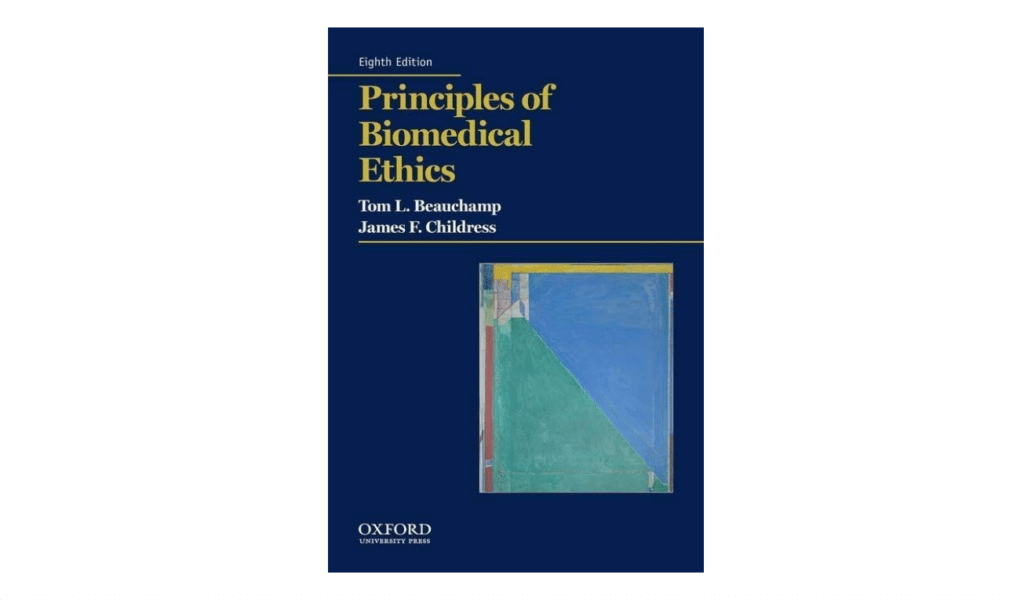
Summary:
A cornerstone in the field of bioethics, Principles of Biomedical Ethics offers a systematic framework for making moral decisions in medicine. The book emphasizes four key principles: autonomy, non-maleficence, beneficence, and justice.
What You'll Learn:
In this pioneering work, you will gain insights into the foundational principles of biomedical ethics. The book provides an in-depth understanding of the challenges of applying ethics to medical situations and showcases real-world applications of ethical theories in healthcare.
Why You Should Read It:
This book is essential for those wanting to gain a comprehensive understanding of how the world of bioethics has evolved. It offers a solid base for making ethical decisions in medical practice.
Quote From The Book:
"Respect for autonomy does not merely require that we abstain from thwarting autonomous actions; it also requires positive actions to ensure understanding, voluntariness, and non-control."
About The Author:
Tom L. Beauchamp and James F. Childress are renowned figures in the realm of bioethics. Their combined expertise and research have shaped discussions in the field for years.
2. The Oxford Handbook of Bioethics by Bonnie Steinbock
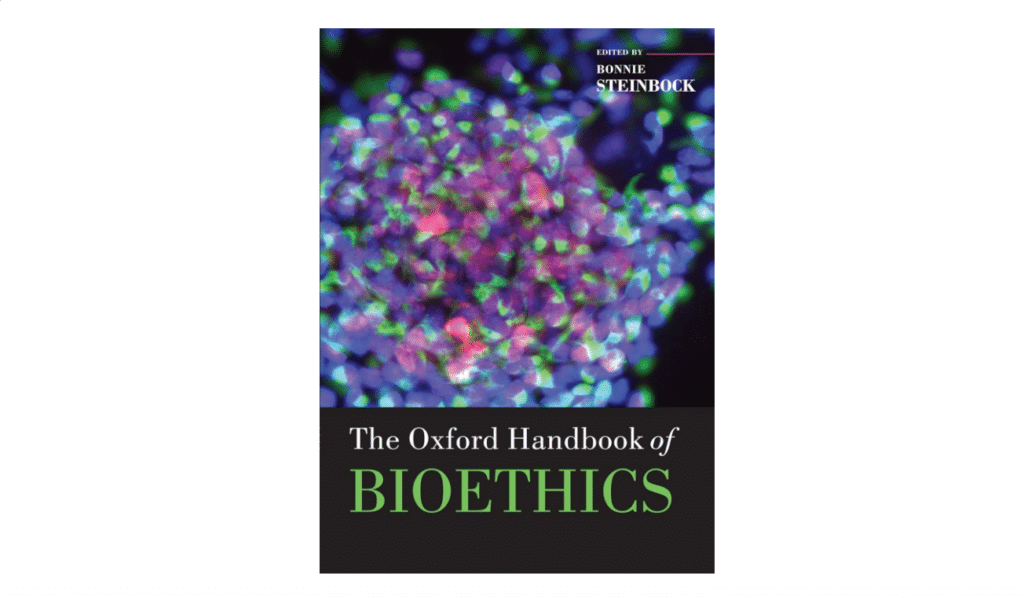
Summary:
The Oxford Handbook of Bioethics is a comprehensive anthology that delves into an array of topics in bioethics. Bonnie Steinbock, along with other renowned contributors, provides examinations on issues ranging from genetic interventions to end-of-life care.
What You'll Learn:
This handbook brings forward a myriad of ethical issues arising from modern medical practice. Readers will explore diverse viewpoints on controversial subjects and gain insights into the ethical considerations surrounding novel medical technologies.
Why You Should Read It:
The book stands out for offering a broad overview of the key topics in bioethics. It ensures readers are up-to-date with the latest debates and discussions in the field.
Quote From The Book:
"Ethical considerations must be central, not peripheral, to medical advancements."
About The Author:
Bonnie Steinbock is a respected name in bioethics. Her research and contributions have played an essential role in shaping discussions in the area.
3. Medical Ethics: A Very Short Introduction by Tony Hope and Michael Dunn
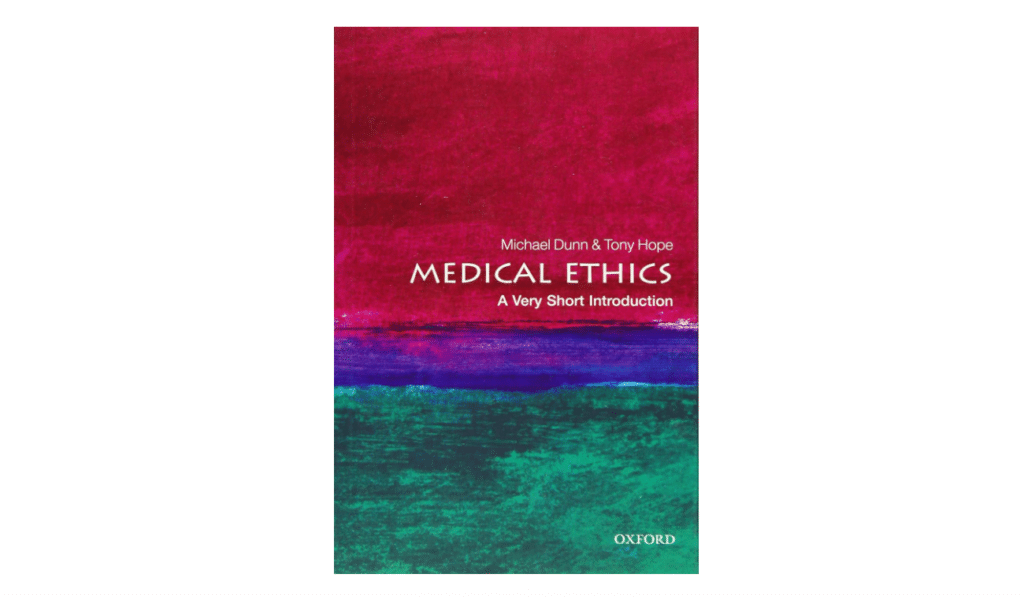
Summary:
In Medical Ethics: A Very Short Introduction, readers are given a concise yet comprehensive overview of the essential ethical issues in medical practice. Hope and Dunn enhance understanding with case studies and examples, bringing abstract concepts to life.
What You'll Learn:
This concise guide unveils the fundamental concepts of medical ethics, showcasing how ethics play a role in everyday clinical practice and emphasizing the significance of ethical considerations in patient care.
Why You Should Read It:
The book serves as a quick yet thorough dive into the world of medical ethics. It is designed to be accessible for both professionals and general readers, making it a valuable addition to any library.
Quote From The Book:
"The relationship between doctor and patient is at the heart of medical ethics."
About The Author:
Tony Hope and Michael Dunn have made significant contributions to the field of medical ethics. Their insights and research have enlightened many about the nuances of ethical considerations in healthcare.
4. The Basics of Bioethics by Robert M. Veatch and Laura K. Guidry-Grimes
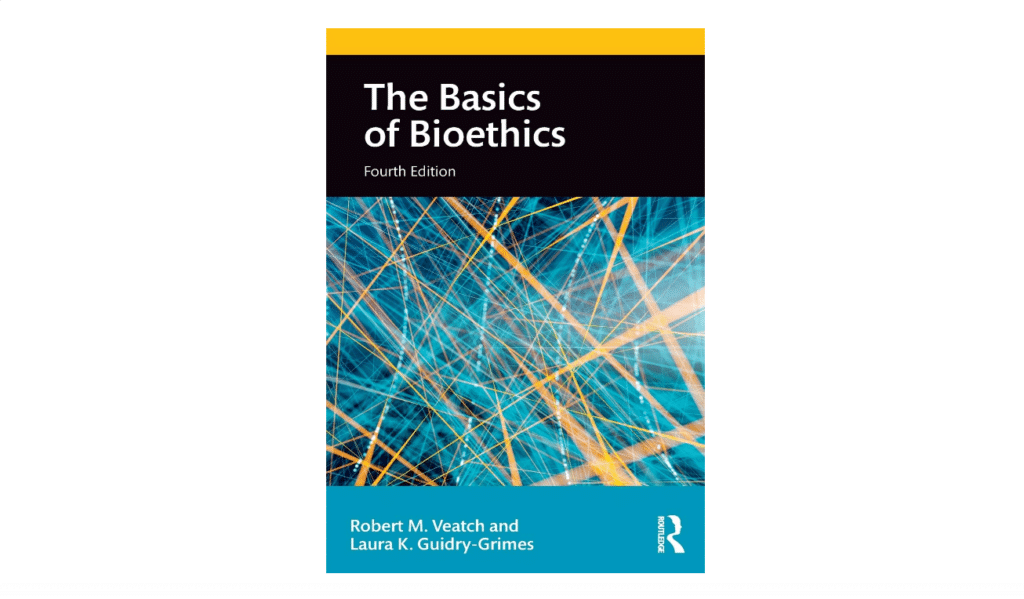
Summary:
This comprehensive guide offers an intricate look into the diverse ethical dilemmas in the healthcare realm. Veatch and Guidry-Grimes lay out the foundations of bioethics, weaving real-life cases with theory, offering both the novice and expert a clear understanding of the subject.
What You'll Learn:
Delve deep into the principles that govern bioethics. Understand the challenges, historical developments, and the varied ethical viewpoints surrounding healthcare decisions.
Why You Should Read It:
For a robust yet accessible grounding in bioethics that bridges theoretical concepts with real-world applications.
Quote From The Book:
"Understanding bioethics is not just about knowing the ethical theories, but about applying them effectively in real-life healthcare scenarios."
About The Author:
Robert M. Veatch and Laura K. Guidry-Grimes have made a significant mark in the realm of bioethics. Their combined academic and practical experiences offer a rich perspective on the subject.
5. Medical Ethics and the Faith Factor by Robert D. Orr
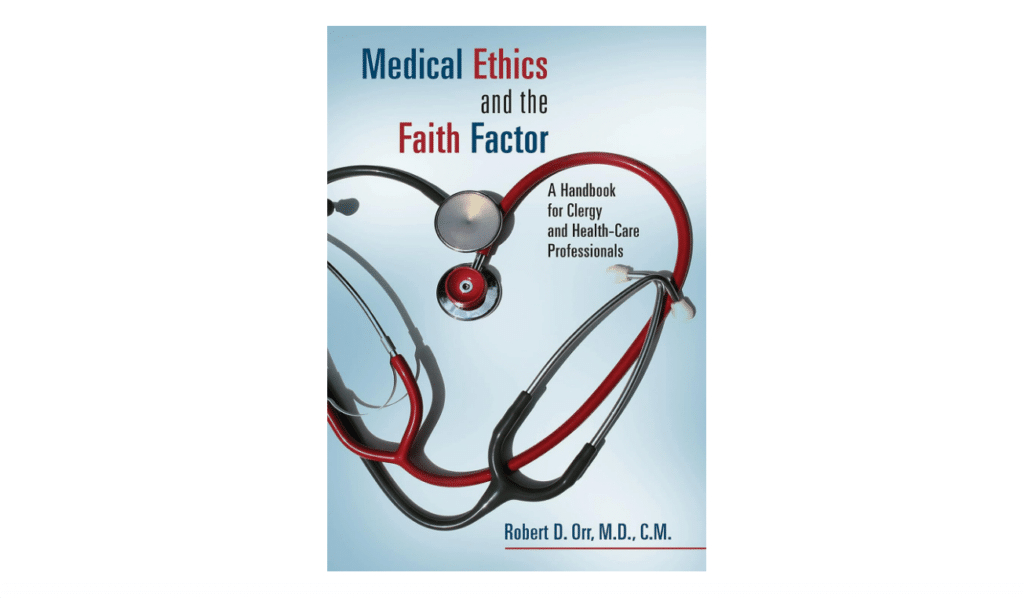
Summary:
This book offers an exploration of medical ethics from a faith perspective. Orr dives into the often challenging intersections between faith, healthcare, and ethics, providing guidance for clergy and healthcare professionals alike.
What You'll Learn:
Understand the critical interplay between religious beliefs and medical ethics. Learn how to navigate the delicate balance of upholding faith principles while ensuring ethical medical care.
Why You Should Read It:
For a unique perspective on how faith influences medical decisions, it is invaluable for anyone at the crossroads of religion and healthcare.
Quote From The Book:
"Faith does not operate in a vacuum; it deeply influences our ethical decisions in the realm of medicine."
About The Author:
Robert D. Orr has extensively researched and written about the intersections of faith and medical ethics. His insights are a blend of his strong faith foundation and deep medical knowledge.
6. The Hippocratic Oath and the Ethics of Medicine by Steven H. Miles
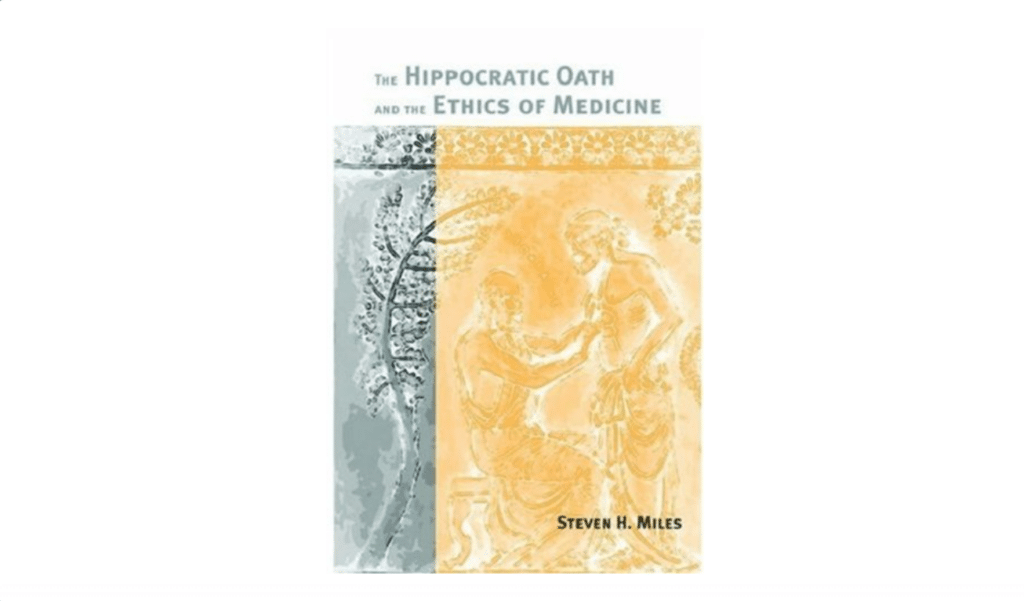
Summary:
Miles offers an insightful analysis of the Hippocratic Oath, a foundational text in medicine. He delves into its history, evolution, and the implications of its principles in contemporary medical practice.
What You'll Learn:
Dive into the origins and interpretations of the Hippocratic Oath. Discover how this ancient text has shaped the ethical foundation of modern medicine.
Why You Should Read It:
To gain a profound understanding of the core values of medicine as framed by one of its oldest and most revered documents.
Quote From The Book:
"The Oath, while ancient, continues to echo in the hallways of modern medical practice, reminding us of our foundational ethics."
About The Author:
Steven H. Miles is an expert in the history and ethics of medicine. His works, particularly on the Hippocratic Oath, have been acclaimed for their depth and clarity.
7. Medical Ethics: Accounts of Ground-Breaking Cases by Gregory Pence
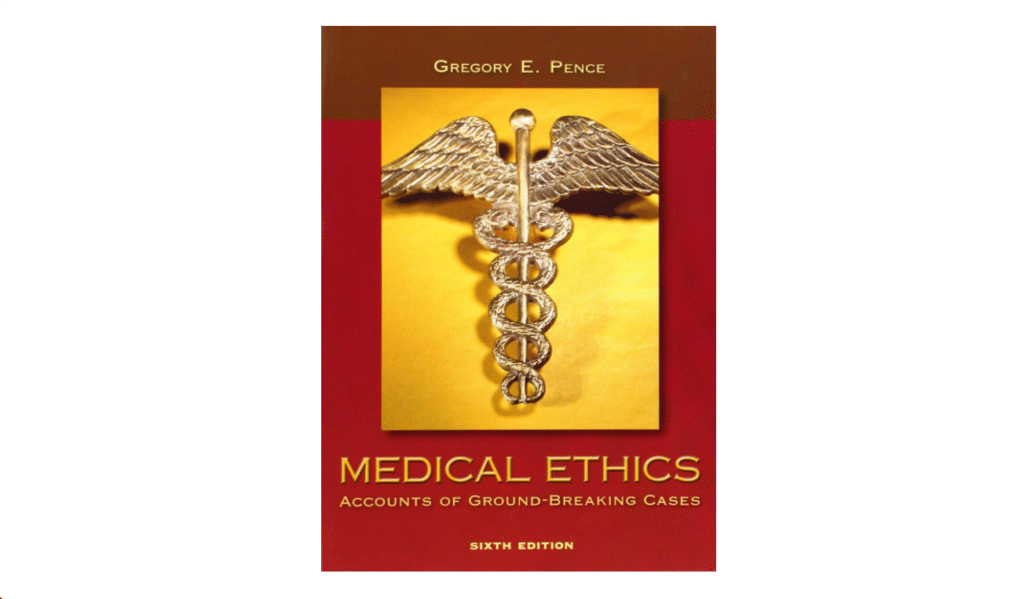
Summary:
Pence’s book dives into real-life, controversial medical cases that have sparked significant ethical debates. By analyzing these cases, the book provides invaluable insights into the challenging world of medical ethics.
What You'll Learn:
Dive deep into some of the most provocative and ethically challenging medical cases. Understand the nuances, arguments, and ethical dilemmas surrounding these cases.
Why You Should Read It:
To get a firsthand look at real-world cases that have shaped the discussions and guidelines in medical ethics.
Quote From The Book:
"Ethics isn't just about theories; it's grounded in real-life choices, consequences, and the stories behind them."
About The Author:
Gregory Pence is a leading figure in the discussions on medical ethics, especially in the context of groundbreaking and controversial cases.
8. Bioethics 3e: An Anthology, 3rd Edition by Helga Kuhse, Udo Schüklenk, and Peter Singer
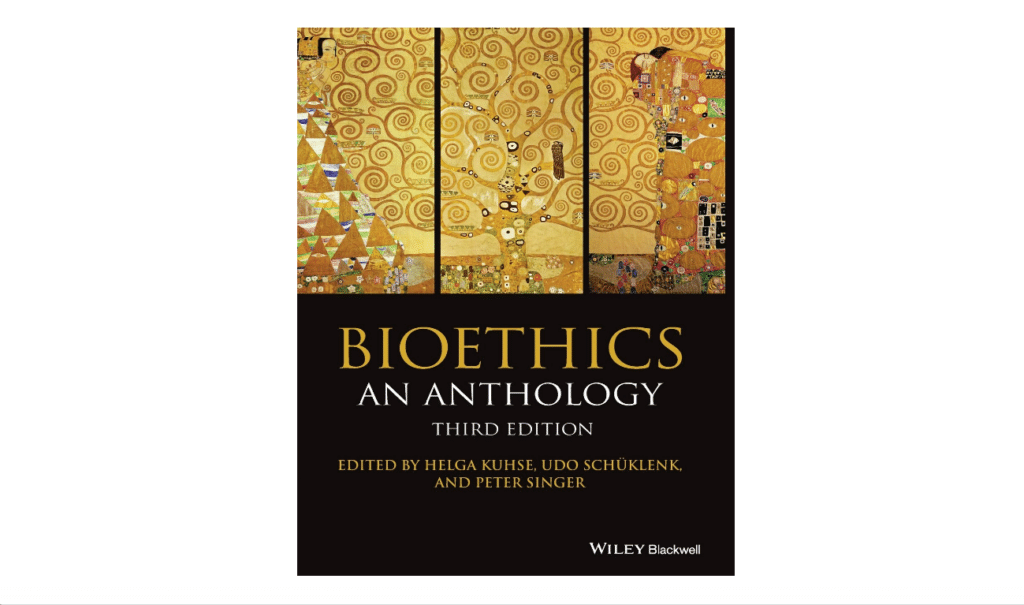
Summary:
A definitive compilation of essential writings on bioethics, this anthology curated by Kuhse, Schüklenk, and Singer covers a broad range of bioethical topics, presenting readers with diverse perspectives and discussions.
What You'll Learn:
Familiarize yourself with seminal texts, varied viewpoints, and the depth of discussions on critical topics in bioethics from renowned thinkers around the world.
Why You Should Read It:
For a comprehensive understanding of bioethics, enriched by the minds of numerous experts, spanning decades of discourse.
Quote From The Book:
"Ethical discussions evolve, but the core questions remain. Dive deep into the minds that have shaped bioethical discourse."
About The Author:
Helga Kuhse, Udo Schüklenk, and Peter Singer are esteemed figures in the bioethics community. Their combined academic prowess and contributions offer readers a rich and diverse view of bioethics.
9. Resolving Ethical Dilemmas: A Guide for Clinicians by Bernard Lo
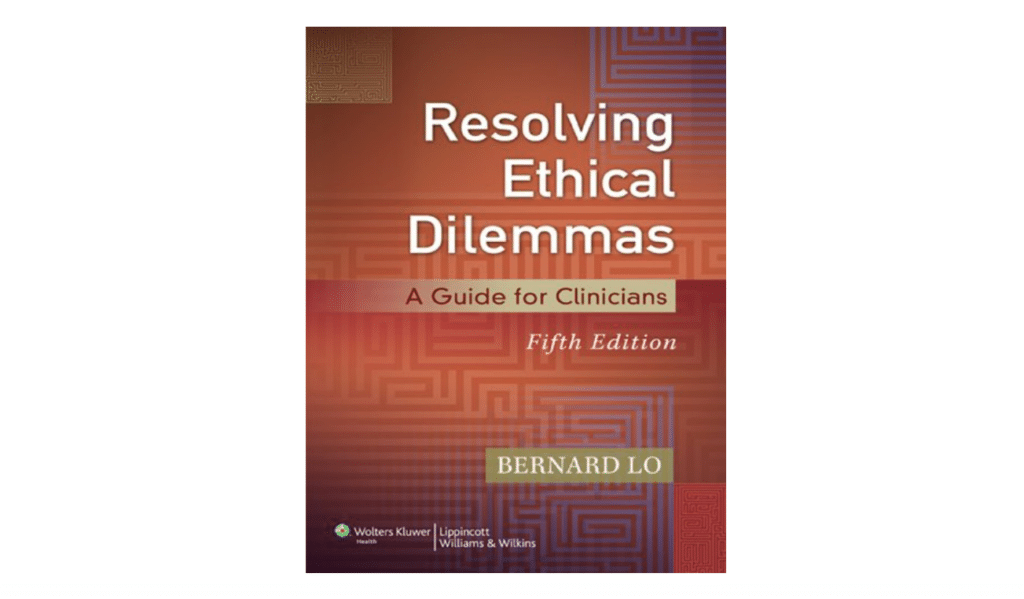
Summary:
Lo's guide is an essential tool for clinicians navigating the maze of ethical dilemmas in modern medical practice. The book provides practical guidelines and tools to analyze and resolve these complex situations.
What You'll Learn:
Understand the framework for ethical decision-making in clinical settings. Gain tools and strategies to navigate and resolve ethical dilemmas in your medical practice.
Why You Should Read It:
For actionable insights and a structured approach to tackle ethical challenges in clinical settings.
Quote From The Book:
"Medical ethics isn’t abstract; it's the daily challenge faced by clinicians. Knowing how to navigate it is imperative."
About The Author:
Bernard Lo is an authority in the field of clinical ethics. His works have guided countless clinicians in their ethical journeys.
10. Clinical Ethics: A Practical Approach to Ethical Decisions in Clinical Medicine by Albert R. Jonsen, Mark Siegler, and William J. Winslade
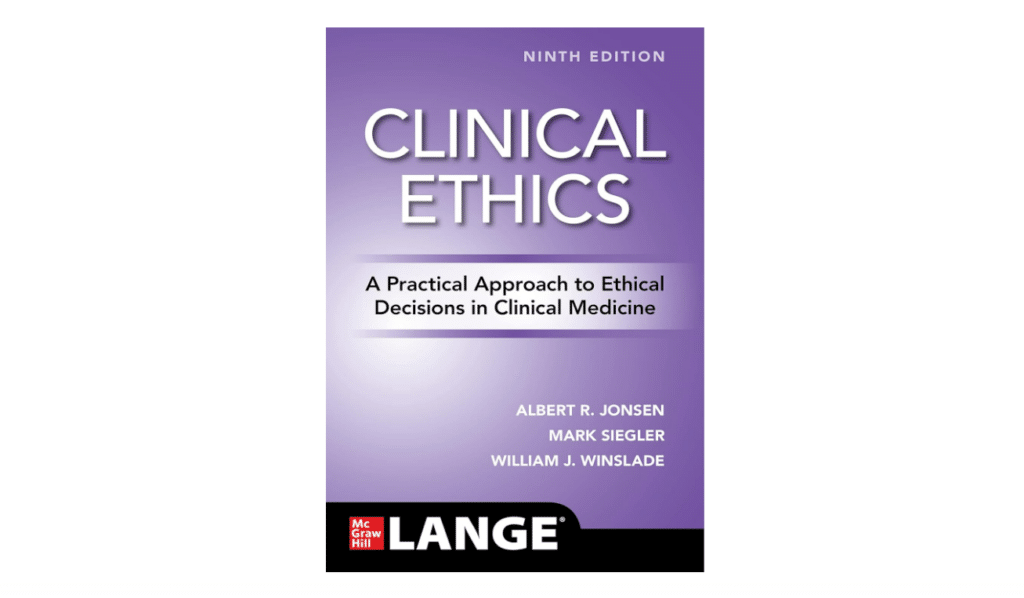
Summary:
This book serves as a compass for medical professionals navigating the complex terrain of clinical ethics. The authors provide a structured approach to making ethical decisions, grounded in real-world cases and scenarios.
What You'll Learn:
Grasp a step-by-step method to address ethical challenges in clinical medicine. Understand foundational principles and their application in diverse clinical situations.
Why You Should Read It:
To equip yourself with a systematic framework for handling ethical dilemmas in the fast-paced world of clinical medicine.
Quote From The Book:
"In the intricate dance of clinical medicine, ethics is the rhythm we must understand and follow."
About The Author:
Albert R. Jonsen, Mark Siegler, and William J. Winslade are pioneers in the world of clinical ethics. Their combined expertise provides readers with invaluable insights and tools.
- Albert R. Jonsen's Amazon profile
- Mark Siegler's Amazon profile
- William J. Winslade's Amazon profile
11. Bioethics: Principles, Issues, and Cases by Lewis Vaughn
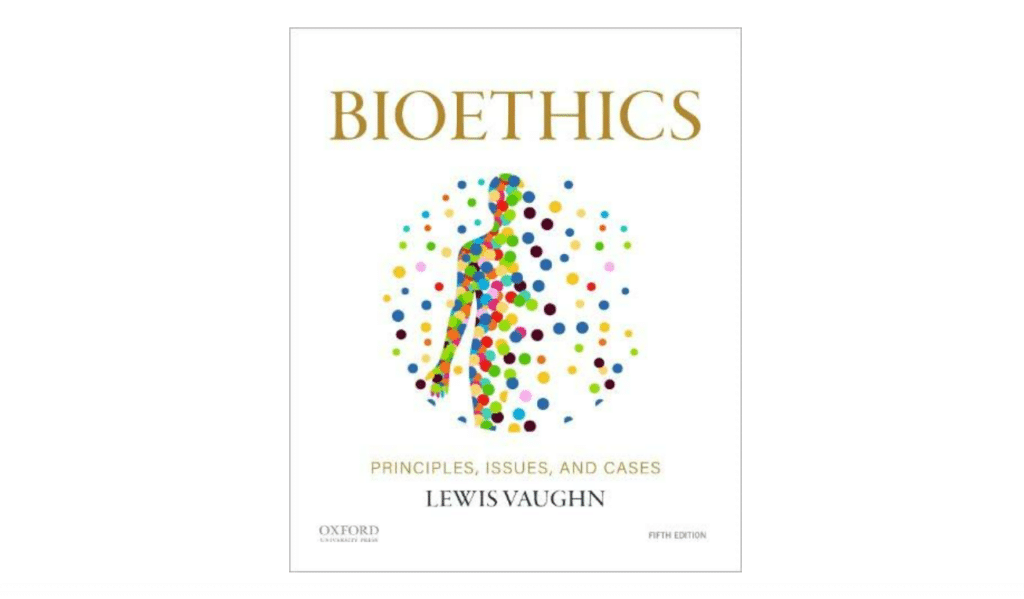
Summary:
Vaughn’s work is a comprehensive exploration of bioethics, covering its core principles, contemporary issues, and illustrative cases. The book is an amalgamation of philosophy, law, and medical ethics.
What You'll Learn:
Gain a profound understanding of the principles governing bioethics. Engage with current debates and dissect real-world cases that challenge ethical boundaries.
Why You Should Read It:
For a holistic view of bioethics that bridges theory with practice, making it an essential read for both novices and experts.
Quote From The Book:
"Bioethics isn't just a subject; it's the intersection of humanity, morality, and the quest for health."
About The Author:
Lewis Vaughn is a celebrated author in the field of ethics, philosophy, and critical thinking. His writings resonate with clarity and depth.
12. The Patient as Victim and Vector by Margaret P. Battin, Leslie P. Francis, Jay A. Jacobson, and Charles B. Smith
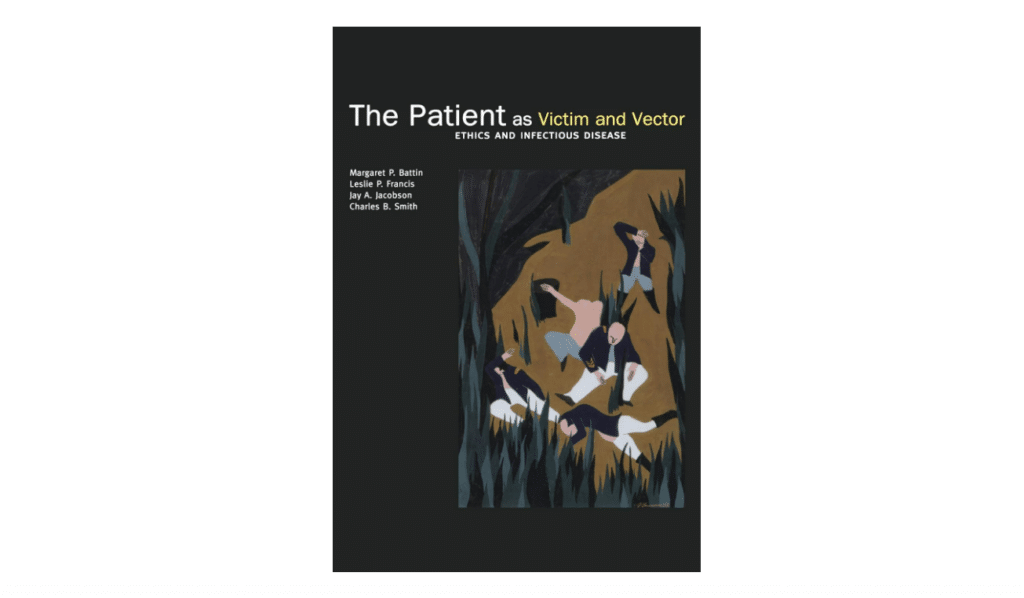
Summary:
This groundbreaking work delves into the dual roles patients play in infectious diseases – both as victims and vectors. The authors masterfully explore the ethical dimensions of infectious diseases and the dilemmas they present.
What You'll Learn:
Understand the ethical considerations surrounding infectious diseases. Explore the dual roles patients play and the moral quandaries this presents to health professionals and society at large.
Why You Should Read It:
To engage with a fresh and ethically challenging perspective on infectious diseases, adding depth to the current discussions on pandemics and public health.
Quote From The Book:
"In the world of infectious diseases, understanding the ethical balance between individual rights and collective safety is paramount."
About The Author:
Margaret P. Battin, Leslie P. Francis, Jay A. Jacobson, and Charles B. Smith are esteemed figures in the realm of medical ethics and infectious diseases. Their combined expertise offers readers a nuanced and well-rounded perspective.
- Margaret P. Battin's LinkedIn
- Leslie P. Francis's LinkedIn
- Jay A. Jacobson's work page
- Charles B. Smith's work page
13. Ethics and Health Care: An Introduction by John C. Moskop
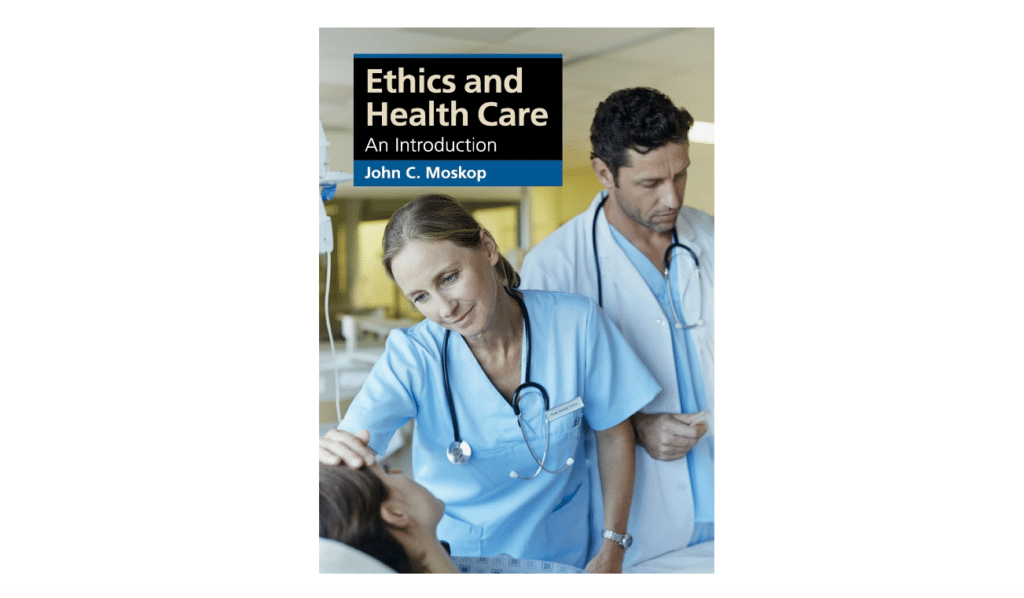
Summary:
Moskop's work is an enlightening journey through the labyrinth of healthcare ethics. Drawing from real-life cases, the book provides a foundational understanding of the moral issues that permeate the healthcare landscape.
What You'll Learn:
Delve into core principles of health care ethics. Engage with intricate dilemmas that professionals face and explore frameworks for resolution.
Why You Should Read It:
To acquire a grounded understanding of the key ethical challenges in healthcare and to be equipped with tools for ethical decision-making.
Quote From The Book:
"Ethics in healthcare isn't just theoretical; it's the heartbeat of every decision made."
About The Author:
John C. Moskop is a recognized authority in the domain of healthcare ethics.
14. The Ethics of What We Eat by Peter Singer and Jim Mason
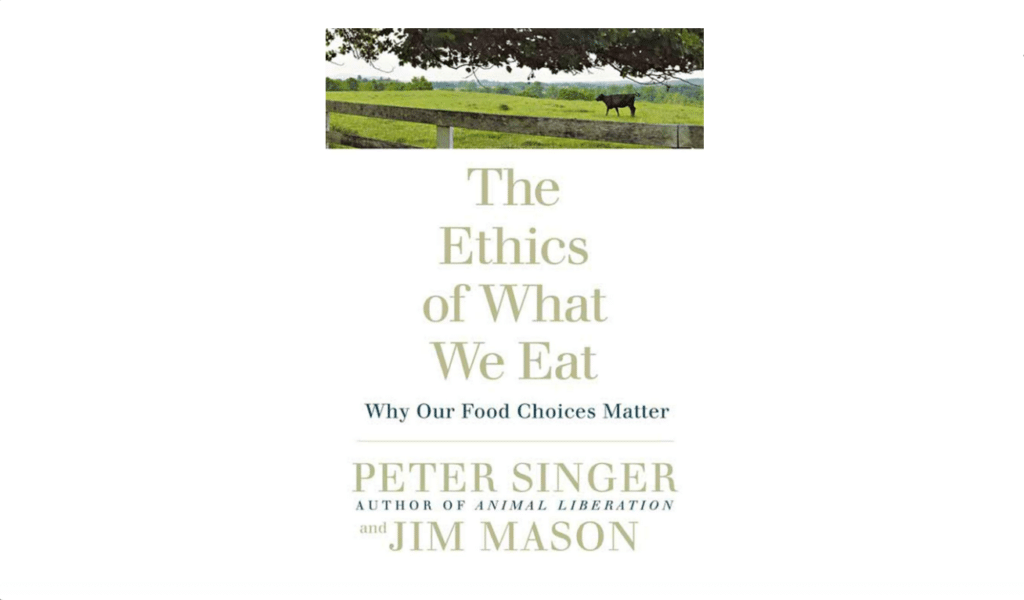
Summary:
Singer and Mason present a compelling narrative on the ethical dimensions of our food choices. They explore the journey of food from farm to plate, shedding light on the moral implications at every stage.
What You'll Learn:
Understand the ethical considerations behind everyday food choices. Dive into the practices of food production, and discern the broader impact on animals, workers, and the environment.
Why You Should Read It:
To be informed and conscious of the ethical footprint of your diet and to make choices that align with your moral compass.
Quote From The Book:
"Every meal is a statement of our values and our humanity; choose wisely."
About The Author:
Peter Singer and Jim Mason have long been advocates for ethical considerations in everyday life. Their writings have shaped discussions around ethics and our responsibility to the world.
15. Case Studies in Biomedical Ethics: Decision-Making, Principles, and Cases (Second Edition) by Robert M. Veatch, Amy M. Haddad, and Dan C. English
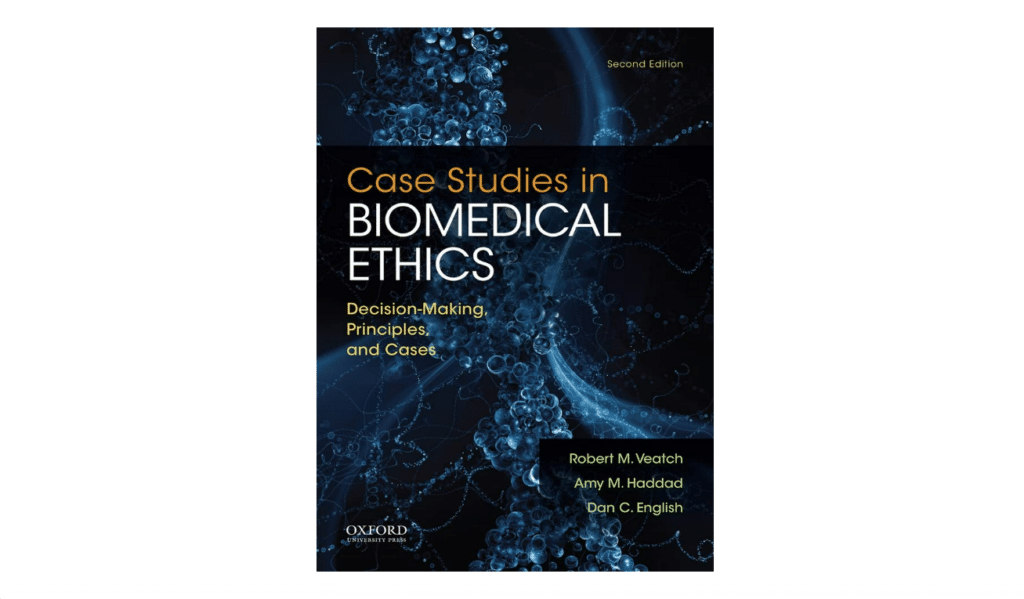
Summary:
A collection of riveting case studies that encapsulate the diverse and complex nature of biomedical ethics. Veatch, Haddad, and English guide readers through intricate scenarios, elucidating the principles and thought processes involved in ethical decision-making.
What You'll Learn:
Engage with a variety of biomedical cases. Learn the principles, guidelines, and reasoning processes pivotal in addressing ethical dilemmas in the biomedical realm.
Why You Should Read It:
To get a practical, hands-on approach to biomedical ethics through real-world scenarios, enhancing your ethical problem-solving skills.
Quote From The Book:
"In the vast arena of biomedical ethics, every case is a lesson in humanity, judgment, and empathy."
About The Author:
Robert M. Veatch, Amy M. Haddad, and Dan C. English have left indelible marks in the realm of biomedical ethics. Their combined expertise offers an enriching perspective on the subject.
16. The Birth of Bioethics by Albert R. Jonsen
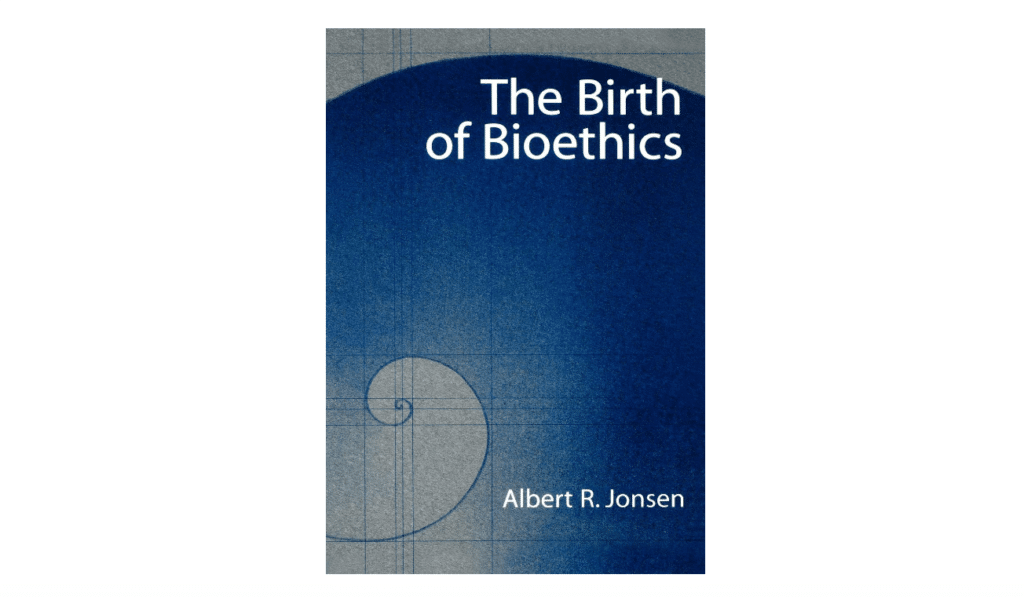
Summary:
The Birth of Bioethics chronicles the emergence and evolution of bioethics as a distinct field of study. Jonsen masterfully weaves the historical and philosophical threads that shaped its foundation.
What You'll Learn:
Trace the origins of bioethics, its pivotal moments, and understand the philosophical underpinnings that have shaped its trajectory.
Why You Should Read It:
For a comprehensive understanding of the inception of bioethics and to appreciate the intellectual journey that has defined its principles and challenges.
Quote From The Book:
"Bioethics is not just a discipline, but a dialogue between medicine, philosophy, and society."
About The Author:
Albert R. Jonsen, an eminent figure in bioethics, has significantly influenced the discourse on medical ethics.
17. The Immortal Life of Henrietta Lacks by Rebecca Skloot
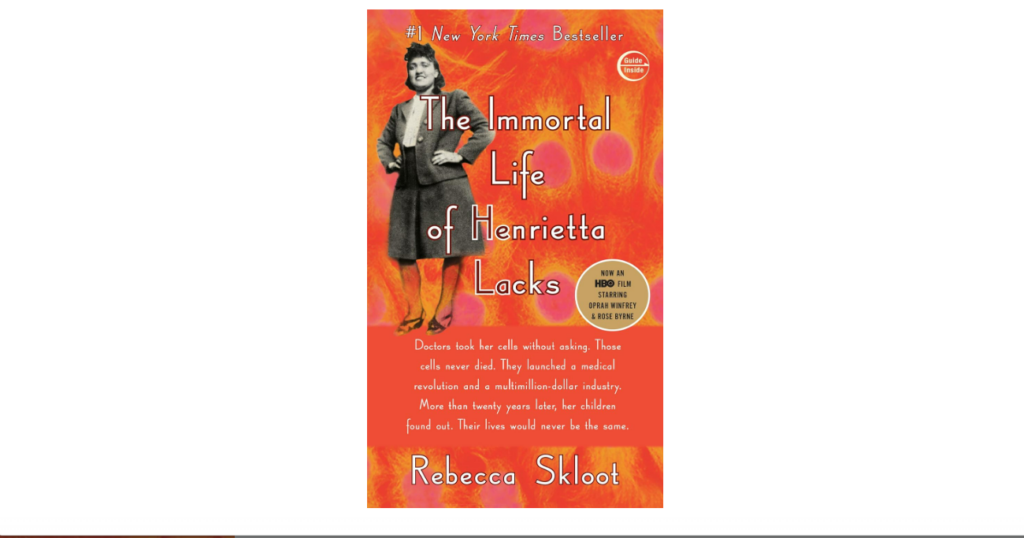
Summary:
Skloot unveils the gripping story of Henrietta Lacks, whose cells—taken without her knowledge—have been vital in numerous medical breakthroughs. It's an exploration of ethics, racism, and the dark side of scientific advancement.
What You'll Learn:
The life of Henrietta Lacks and the story of HeLa cells. Grapple with the ethical dilemmas surrounding patient rights, consent, and the boundaries of scientific exploration.
Why You Should Read It:
To understand the human story behind one of the most influential cell lines in medical research and to ponder the ethical quandaries it presents.
Quote From The Book:
"Science does not operate in a vacuum; it's entwined with the very fabric of society and its ethical struggles."
About The Author:
Rebecca Skloot is an award-winning science writer whose works have illuminated the human aspects of scientific endeavors.
Related Medical Books
Here are some related books that may be helpful to check out:
- Medical law and ethics books
- Medical terminology books
- Healthcare leadership books
- Healthcare administration books
The vast realm of medical ethics is ever-expanding. If there are seminal works you believe should be on this list, please share your recommendations. Your insights are invaluable in enriching this collection.
To stay updated on the latest trends, best practices, and solutions related to your medical practice, subscribe to The Medical Practice newsletter.


